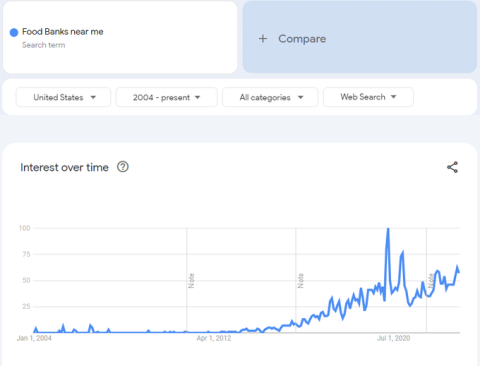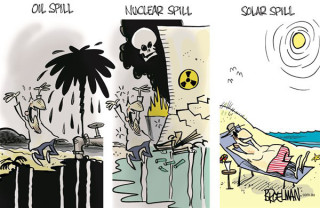such a great economy
2023-Aug-07, Monday 05:16 pmI've written here at least once over the years that I think GDP is a bad measure of the condition of an economy. I think the GINI coefficient needs to be included in any measure of national health. Maybe you can understand my frustration when, year after year, we see president after president get up for a State Of The Union address and declare that the USA is "strong".
I've been saying at least since the Occupy movement that things are bad and getting worse. I know I sound foolishly unrealistic when I say it, given all the politicians and newspapers and journals who say otherwise. Consider, though, this chart that was brought to my attention on Reddit. I decided to check the validity of it. I went directly to Google to generate the same graph. It shows how often people in the USA search Google with the phrase "food banks near me", from 2004 to 2023.
Somebody needs to explain to me how things can be so bad and can continue getting worse for so long, yet "the system" keeps telling us that everything is alright.
I don't see how any of this can continue. Please, explain it to me like I'm stupid, because it doesn't make any sense to me. If I'm wrong, then I'm wrong, but I need to understand why I'm wrong.

